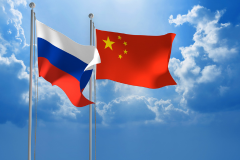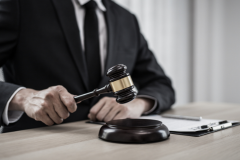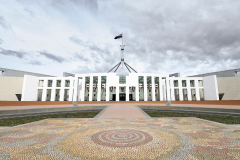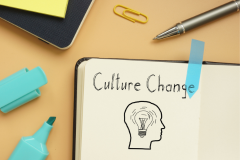HUMANITIES DOMAIN
Matt Gray
Humanities Instructional Leader
The Humanities encourages us to think creatively. They teach us to reason about being human and to ask questions about our world. We study human cultures, values and beliefs and investigate how we have got to the place we are today and where we might be heading.
Through studying the Humanities in Middle School (Year 7 & 8), you will be introduced to History, Geography, Civics & Citizenship, and Economics & Business. This will help you decide what aspects of Humanities you find most interesting, which should assist you in deciding your future subjects in this Domain.
Accounting 3-4

- Extend your understanding of the accounting processes for recording and reporting
- Create strategies to improve the performance of a business
- Interpret accounting reports and graphical representations
Subject Code: V2HAC
Year Level: 12
Unit 3: Financial Accounting for a trading business
We focus on a trading business owned by a sole proprietor, and the role of accounting as an information system. You use the double entry system of recording financial data and prepare reports using the accrual basis, and the perpetual method of inventory recording. We develop your understanding of the accounting processes for recording and reporting and consider the effect of decisions made on the performance of the business. You interpret reports and information presented in a variety of formats and suggest strategies to improve the performance of the business.
What does this mean for me?
You are introduced to double entry accounting used by businesses world-wide and finetune your analysis skills.
Unit 4: Recording, reporting, budgeting and decision making
We extend your understanding of the recording and reporting process. We incorporate balance day adjustments and alternative depreciation methods, utilising both manual techniques and information technology. You investigate both the role and importance of budgeting in decision-making for a business. You analyse and interpret accounting reports and graphical representations to evaluate the performance of a business and suggest strategies to improve performance.
What does this mean for me?
Skills learnt in Unit 1 to 3 are developed and extended. Skills and knowledge learnt in Unit 3 and 4 are very similar to those covered in first year Commerce and Business degrees and is thus invaluable if you are considering one of these courses.
Through all units (where appropriate), the ethical considerations faced by business owners when making decisions (including financial, social and environmental), will be explored.
Assessment
- Tests
- External exams
What sort of student would like Accounting?
Someone who:
- Is looking to study Business, Commerce, Finance or management related courses
- Is considering a trade or has an interest in going into business for themselves.
Suggested Pre-Requisites
Unit 1 and 2 Accounting form the basis of Unit 3 and 4, so are highly recommended.
Business Management 3-4

- Understand how business adapt in a constantly evolving landscape
- Investigate the strategies businesses deploy to manage staff and operations
- Analyse business case studies
Subject Code: V2HBM
Year Level: 12
Unit 3: Managing a business
We explore the key processes and issues concerned with managing a business efficiently and effectively to achieve the business objectives. You examine the different types of businesses and their respective objectives. We consider corporate culture, management styles, management skills and the relationship between each of these. We investigate strategies to manage both staff and business operations to meet objectives. You develop an understanding of the complexity and challenge of managing businesses and through the use of contemporary business case studies have the opportunity to compare theoretical perspectives with current practice. A practical excursion is also undertaken to a local manufacturing business, such as Mars Petcare or Visy.
Unit 4: Transforming a business
Businesses are under constant pressure to adapt and change to meet their objectives. We consider the importance of reviewing key performance indicators to determine current performance and the strategic management necessary to position a business for the future. We study a theoretical model to undertake change, and consider a variety of strategies to manage change in the most efficient and effective way to improve business performance. You investigate the importance of leadership in change management. Using a contemporary business case study, you evaluate business practice against theory.
Assessment
- Case study analysis
- Short answer questions
- Research tasks
- Topic tests
- End of year external exam
What sort of student would like Business Management?
Someone who:
- Wishes to pursue a tertiary course in Commerce, Economics or Accounting
- Is more practically minded who may wish to work for a business after leaving school via apprenticeships or a vocational pathway, with the ultimate goal of owning and running their own business.
Suggested Pre-Requisites
Nil. However Unit 1 and 2 offer useful background knowledge for Unit 3 and 4.
Geography 3-4

- How is our world changing?
- Study deforestation and melting glaciers
- Look at the issues facing countries with rapidly growing populations
Subject Code: V2HGE
Year Level: 12
Unit 3: Changing the land
We focus on two investigations of geographical change: change to land cover and change to land use. Land cover includes biomes such as forest, grassland, tundra and wetlands, as well as land covered by ice and water. Our class looks at how natural land cover has been altered by many processes such as geomorphological events, plant succession and climate change. You investigate two major processes that are changing land cover in many regions of the world:
- Deforestation
- Melting glaciers and ice sheets.
What does this mean for me?
We analyse how nature and humans change land surfaces and the impacts this has on us as a species and the environment. At a local scale, you investigate land use change using appropriate fieldwork techniques and secondary sources. You undertake fieldwork and produce a fieldwork report.
Unit 4: Human population – trends and issues
Our class investigates the geography of human populations. We explore the patterns of population change, movement and distribution, and how governments, organisations and individuals have responded to those changes in different parts of the world. You consider two significant population trends arising in different parts of the world and examine the dynamics of populations and their economic, social, political and environmental impacts on people and places.
What does this mean for me?
You evaluate trends in people movement globally, and the impacts this has on economics and lifestyle as well as the environment.
Assessment
- Fieldwork report
- Course work
- Class tests
- Presentation – fieldwork data collection and analysis
- End of semester exam
What sort of student would like Geography?
Someone who:
- Has an interest about the world and how humans impact on its physical environment
- Would like conducting fieldwork at a local site and collecting data to then process and present
- Is considering a career in agriculture (farming, forestry, fisheries, etc), mining, surveying, horticulture, mapping, environmental management, climatology, and urban planning.
Suggested Pre-Requisites
Nil. However, Geography Unit 1 and 2 would be beneficial for skill development.
History - Revolutions 3-4

- How does a revolution occur?
- Explore the Russian and Chinese Revolutions
- Understand how these revolutions have shaped ideas, leaders and society today.
Subject Code: V2HHR
Year Level: 12
Unit 3 & 4: History Revolutions
In Units 3 & 4 we investigate the significant historical causes and consequences of political revolution. Revolutions represent great ruptures in time and are a major turning point which brings about the collapse and destruction of an existing political order, resulting in a pervasive change to society.
In this subject we study two of the 20th century's most significant nations: Russia and China. We discover what has led these two powerful nations to develop into brutal dictatorships. You explore the reasons the lower classes rose up to brutally overthrow the ruling elite and the consequences these revolutions had on their countries and the world.
What does this mean for me?
You develop an understanding of two of the most significant revolutions in human history. The Russian Revolution shaped the 20th century and led to the divisions of the Cold War. The revolution was led by significant historical figures; Lenin, Trotsky and Stalin. The overthrow of the 400 year old Romanov Dynasty was inspired by the works of Marx and was a violent and brutal time in history.
The Chinese Revolution tells the story of how Mao Zedong became the most brutal dictator the world has ever known. It also helps you understand how China has set itself up to become the most powerful nation on earth today. Again, this revolution was inspired by Marxist ideas and also, involved a brutal and violent uprising of the lower classes.
Assessment
- historical inquiries
- analyses of primary sources
- analyses of historical interpretations
- essays
What sort of student would like History | Revolutions?
Someone who:
- Is interested in knowing about the world.
- Is interested in Social Science, History, Politics and Culture.
- Has strong literacy and language skills, and who likes to analyse different forms of texts.
- Has any historical interest at all. In this subject we cover modern events like WWI and WWII. But knowledge of history from before the 20th century is also explored.
- Would like to research careers in archaeology, anthropology, foreign affairs, politics, writing, the law, journalism, public service, social, cultural and military history and sociology.
Suggested Pre-Requisites
Nil. Pathways subjects History - Conflicts or History - Australian History would help with skills development but are not essential.
Legal Studies 3-4

- Understand the many layers of the Victorian and federal justice system
- Is the rule of law upheld in the justice system?
- Apply legal knowledge and principles to relevant cases
Subject Code: V2HLS
Year Level: 12
Unit 3: Rights and justice
The Victorian justice system, which includes the criminal and civil justice systems, aims to protect the rights of individuals and uphold the principles of justice: fairness, equality and access. We examine the methods and institutions in the justice system and consider their appropriateness in determining criminal cases and resolving civil disputes.
What does this mean for me?
We consider the Magistrate’s Court, County Court and Supreme Court within the Victorian court hierarchy. We also look at other Victorian legal institutions and bodies available to assist with cases. You explore matters such as rights available to an accused and to victims in the criminal justice system, the roles of the judge, jury, legal practitioners and the parties, and ability of sanctions and remedies to achieve their purposes. We investigate the extent to which principles of justice are upheld in the justice system. You discuss recent reforms from the past four years and recommend reforms to enhance the ability of the justice system to achieve the principles of justice.
We apply legal reasoning and information to actual and/or hypothetical scenarios.
Unit 4: The people and the law
The study of Australia’s law and legal system involves an understanding of institutions that make and reform our laws, the relationship between the Australian people, the Australian Constitution, and law-making bodies.
What does this mean for me?
You explore how the Australian Constitution establishes the law-making powers of the Commonwealth and state parliaments, and protects the Australian people through structures that act as a check on parliament in law-making. We develop an understanding of the significance of the High Court in protecting and interpreting the Australian Constitution. You investigate parliament and the courts, and the relationship between the two in law-making, and consider the roles of the individual, the media and law reform bodies in influencing law reform.
We apply legal reasoning and information to actual scenarios.
Assessment
- 50% internal school assessed coursework
- 50% external exam of 2 hours duration, comprising short answer and extended response questions
What sort of student would like Legal Studies?
If you want to know and understand more about how our society operates then you should choose Legal Studies.
Someone who:
- Is interested in concepts of equality and justice
- Wants to develop their knowledge of basic legal rights and obligations
- Would enjoy looking at the processes used in Australia to control activities and change the law
- Likes current affairs, following and understanding significant court cases
- Wants to understand more about how our society operates and enjoys class discussion.
Other considerations
Legal Studies is of interest in its own right and enhances learning skills in many areas. It is definitely not just for those seeking a career in law or criminology. It provides opportunity to develop skills and knowledge that can be applied in many aspects of our lives.
There are many courses and occupations that include units based on Legal Studies (commerce, business administration, nursing, computer courses, and the federal or state police forces.)
Suggested Pre-Requisites
Nil for Unit 1, 2 and 3. However, if you wish to study Unit 4, you must undertake Unit 3 and 4 as a sequence.
Politics 3-4

- Learn about how political actors use power to resolve issues and conflicts over how society should operate
- Investigate contemporary issues of conflict, political stability and/or change within Australia, the Indo-Pacific region and globally
- Consider how national and global political actors respond to issues and crises such as national political reform, climate change, violent conflict and human rights
Subject Code: V2HAP
Year Level: 12
Unit 3: Global cooperation and conflict
In this unit, students investigate an issue and a crisis that pose challenges to the global community. Students begin with an investigation into an issue of global scale, such as climate change, global economic instability, the issue of development or weapons of mass destruction.
Unit 4: Power in the Indo-Pacific
In this unit, students investigate the strategic competition for power and influence in the Indo-Pacific region. They consider the interests and perspectives of global actors within the region, including the challenges to regional cooperation and stability.
Assessment
- a political inquiry
- analysis and evaluation of sources
- extended responses
- short-answer questions
- an essay.
What sort of student would like Australian Politics?
Someone who:
- Has an interest in current affairs: you need to keep up with political events in the media
- Has an interest in the inner-workings of government
- Has strong literacy and language skills
- Is interested in a career in politics, the public service, foreign affairs, law or journalism
- Is interested in contributing to lively political discussion.
Suggested Pre-Requisites
Unit 1 and 2 Politics form the basis of Unit 3 and 4, so are highly recommended.
Sociology 3-4

- What causes societies to change?
- Investigate the Australian Indigenous experience
- Explore the idea of community and the power behind social movements
Subject Code: V2HSO
Year Level: 12
Unit 3: Culture and ethnicity
This unit explores expressions of culture and ethnicity within Australian society in two different contexts – Australian Indigenous culture, and ethnicity in relation to migrant groups. Culture and ethnicity refer to groups connected by shared customs, culture or heritage. We investigate how these classifications can define inequality and opportunity, shape cultural activities and provide a sense of purpose.
What does this mean for me?
You learn about the nature of Indigenous history, culture and life through the sociological perspective of sociological imagination. You consider the historical, contemporary world of Indigenous Australians. You focus on the experiences and laws regarding asylum seekers and ethnic groups in Australia.
Unit 4: The people and the law
We see the ways sociologists have thought about the idea of community and how the various forms of community are experienced. We examine the relationship between social movements and social change. We examine the changing definitions and experiences of community and the challenges posed by political, social, economic and technological change. We look at a range of theoretical understandings of the concept of community with particular reference to the theories of Tonnies and Castells.
What does this mean for me?
You learn about the social and sociological world of community.
Assessment
- Short answer and extended response tasks on Indigenous culture and ethnicity
- Research project on a community of choice
- Extended response tasks on two social movements
- End of year external exam
What sort of student would like Sociology?
Someone who is interested in current affairs, social science, history, politics and culture.
